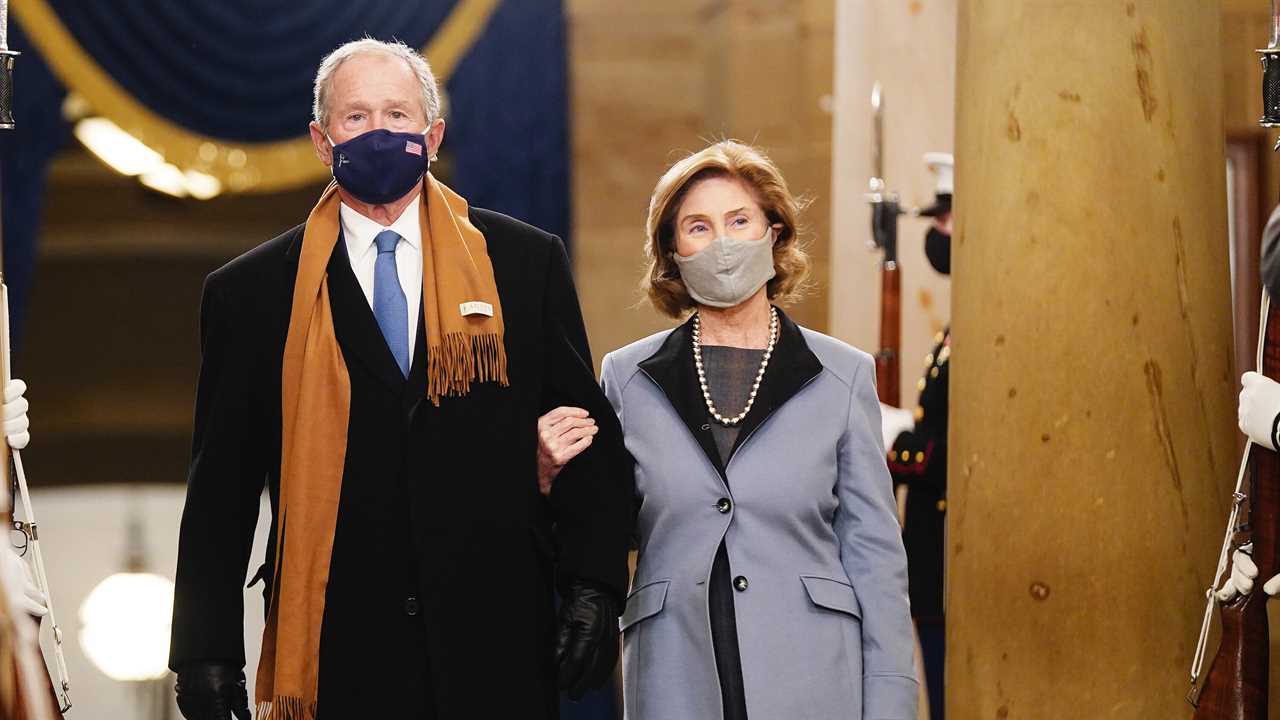
Former President George W. Bush stepped back into the political fray on Tuesday with a pointed rebuke of the Trump-era Republican Party, putting aside his usual silence on politics to air his unhappiness with the party’s direction on issues including immigration and trade.
“I would describe it as isolationist, protectionist and, to a certain extent, nativist,” Mr. Bush said in an interview on NBC’s “Today” show on Tuesday, after he was asked to assess the state of the party.
Mr. Bush had been careful to keep a relatively low profile in recent years, but he has re-emerged to promote a new book of oil paintings and vignettes celebrating the contributions of prominent immigrants, in hopes, he said, of “elevating” the discourse.
The 43rd president, while aware of his limited ability to influence a party that long ago broke with many of his principles and came to distance itself from his record in office, is nonetheless intent, associates said, on making a case for reviving his more inclusive, pro-business brand of “compassionate” conservatism and supporting Republicans who want to move past former President Donald J. Trump.
“I do feel that he recognizes that the party has drifted away from the core principles that he stood for,” said Andrew H. Card Jr., his White House chief of staff from 2001 to 2006 and a longtime friend of the Bush family. “I think he has maintained a lot of discipline not to opine on every little matter, but I think he now recognizes that this is a bruised nation, and he wants to help heal it.”
For all the familiar flashes of self-deprecating humor, Mr. Bush is agitated and alarmed by the state of the nation. The Jan. 6 attack on the Capitol represented “something of a breaking point” for him, Mr. Card said.
“I cried, and the former president, he cried, too,” Mr. Card said, speaking of that day.
In the interview on Tuesday, Mr. Bush expressed his disgust at the pro-Trump mob that stormed the Capitol, but kept to his practice of not calling out Mr. Trump by name.
“It kind of made me sick — not kind of made me sick, it did make me sick,” he said.
Mr. Bush, who left office in 2009 with low approval ratings stemming from the Iraq war and the financial crisis, has been a frequent target of Mr. Trump, who lashed out at him during the 2016 presidential campaign and suggested Mr. Bush should have been impeached for providing false intelligence in the lead-up to the conflict.
One of the factors that has kept Mr. Bush from weighing in more frequently during the Trump years, two people close to him said, was his concern that his statements could be used against his nephew George P. Bush, a Republican official in Texas, who has ambitions for seeking higher office in a state where Mr. Trump remains popular.
This would be a consequential year for Mr. Bush, whose youthful brashness has receded with his hairline, even without the chaos of the election and its aftermath.
Two weeks after the attack on Capitol, Mr. Bush quietly marked the 20th anniversary of his first inauguration, in which he called for bipartisanship — after waging a bare-knuckles battle during the Florida recount to win the White House over his Democratic opponent, Al Gore.
Later this year comes a second, and more painful, moment: the 20th anniversary of the Sept. 11 terrorist attacks, a date President Biden has chosen as his deadline for the complete withdrawal of troops from Afghanistan.
Mr. Biden consulted Mr. Bush and former President Barack Obama before announcing his decision to bring the American presence in the war to an end. It is not clear what counsel, if any, Mr. Bush offered Mr. Biden, but in the NBC interview, Mr. Bush expressed concerns about a full withdrawal, especially the potential effects on women and girls in Afghanistan, whose rights had been severely limited under Taliban rule before the American invasion.
“My first reaction was ‘wow, these girls are going to have real trouble with the Taliban,’” he said. “I think the administration hopes that the girls are going to be OK through diplomacy. We’ll find out. All I know is the Taliban, when they had the run of the place, they were brutal. Brutal.”
On immigration, Mr. Card said the former president “still has the will to ensure that there is a path to citizenship” for immigrants in the country illegally.
Mr. Bush’s own plan failed in Congress and has long been deeply unpopular with the party’s conservative base.
Mr. Trump took full advantage of the backlash against Mr. Bush’s plan by taking a much harder line. A Reuters/Ipsos poll in March found that 56 percent of Republicans do not favor a path to citizenship, up from 38 percent who held that position early in Mr. Trump’s presidency.
But Mr. Bush continues to make the case, put forward by his allies in the business community, that a more welcoming immigration policy, including an expansion of some work visas, is needed to modernize the economy and expand prosperity for native-born workers.
Over the weekend, Mr. Bush called on congressional Republicans to tone down their “harsh rhetoric about immigration” and urged them to enact comprehensive changes.






